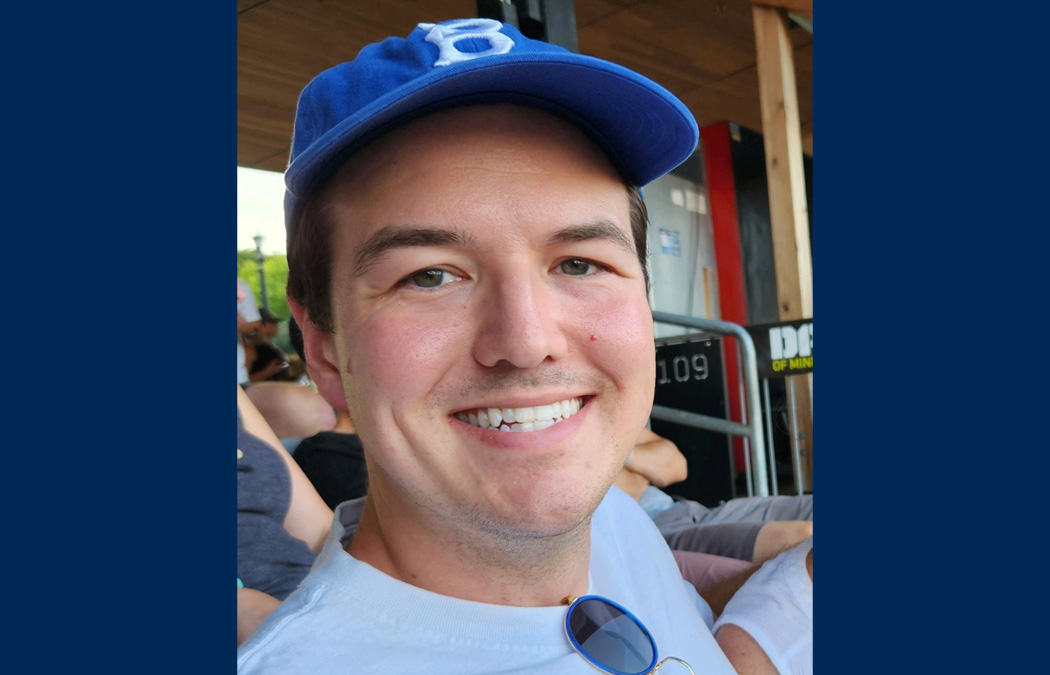Tom Vatterott’s passion for social justice is evident in everything he does.
A case manager for Minnesota nonprofit Simpson Housing Services, Tom’s work focuses on supporting families experiencing or transitioning out of homelessness. His work is varied, ranging from helping people apply for affordable housing, to driving clients to appointments and providing referrals to other available resources for families in need.
Tom received his undergraduate degree from USC, an experience he is grateful for and acknowledges contributed substantially to his growth as a person. However, USC’s achievement-oriented culture felt like it prioritized personal ambition over social responsibility at times, which didn’t always sit well with Vatterott. He had a different feeling when looking at Saint Mary’s Marriage and Family Therapy (MFT) program to continue his education.
“I got the sense that Saint Mary’s aligns with my values, so the university feels closer to home in this regard,” Tom says. “I felt drawn to Saint Mary’s by the affordable tuition and the belief in education as a tool for empowerment, the location, and its culture.”
During orientation, a discussion about the importance of caregiver health and well-being continues to resonate with Tom: an MFT’s health needs to be prioritized first because clients “borrow” the health of their clinicians. This concept has helped him focus more on self-care in his current role so that he can be fully present when supporting his clients.
One of the reasons Tom chose the Marriage and Family Therapy program was because he hoped to make a difference in tackling issues around harmful gender stereotyping and its adverse effects on interpersonal relationships and racial equity.
“I now see MFT work as a form of social justice, but I didn’t start the program thinking that way,” he shared. “I hadn’t thought of my intentions as falling under the umbrella of social justice specifically, but I liked to think that deeper empathy, improved communication skills, self-awareness, and acceptance of discomfort were all important aspects of recognizing privilege and paying attention to underrepresented perspectives.”
Much of what he’s learned in Saint Mary’s Marriage and Family Therapy program is applicable to his current work with equitable housing.
“I’ve started paying attention to where my clients land in the family development life cycle. I feel more attuned to the stressors clients experience during particular chapters of life,” he shares. “I’m able to recognize developmental milestones for my client’s children, and having that context helps me relate to my clients.”
Tom has also begun to notice that his work can be considered a form of activism in itself.
“Relationship systems often change in response to the growth of an individual member,” he shares. “It’s exciting to be able to encourage systemic change simply by being present to my future clients.”
Advocacy continues to play a tremendous role in Tom’s life. He’s been quoted in the Star Tribune and written an op-ed pushing for systemic change for case managers on the frontlines of the housing crisis who are working to end homelessness but struggle to afford rent themselves.


